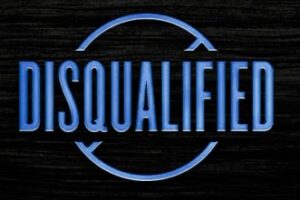Wills on occasion mention another document in existence that the will maker wants to be given effect in the terms of the incorporation by reference in wills.
Re Kellogg Estate 2013 BCSC 2292 pagraphs 74-79 discusses the law relating to incorporation by reference.
[74] The clause in the Will which I refer to as the “Incorporation by Reference Clause” is the following (and is also set out in paragraph 15(b) above):
“If for any reason the said Trust shall not be in existence at the time of my death, or if for any reason a court of competent jurisdiction shall declare the foregoing testamentary disposition to the Trustee under said Trust as it exists at the time of my death to be invalid, then I give all of my estate including the residue and remainder thereof to that person who would have been the Trustee under said Trust as Trustee, and to their substitutes and successors under the Trust, as such trust is described hereinabove. Property held by the designated Trustees shall be held, managed, invested, reinvested and distributed by the Trustees upon the terms, trusts and conditions contained in said Trust pertaining to the period beginning with the date of my death. The terms, trust and conditions shall be those as were constituted in said Trust (giving effect to amendments, if any, hereafter made) immediately prior to its state of non-existence or determination of invalidity, and for that purpose I do hereby incorporate such Trust by reference into this my Will.”
[Underlining Added]
[75] The requirements for incorporating a document into a will were described in Re Mihalopulos ( 1956) 5 DLR (2d) 628, Alta SC, as follows at para. 9:
It seems clear from the authorities that if a document is to be deemed as having been incorporated into a will, two conditions must be satisfied.:
(1) It must be clear that the testator in the will referred to some document then in existence; and
(2), the document in question must be beyond doubt the document referred to: Jarman on Wills, 8th ed., p. 154; Re WatMns (1865), L.R. 1 P.&D. \9; Allen v. Maddock (185%), 11 Moo. P.C. 427, 14 E.R. 757; Singleton v. Tomlinson (1878), 3 App. Cas. 404; Re Smart, [1902] p. 238; University College of North Wales v. Taylor, [ 1908] P. 140; Smart v. Prujean (1801), 6 Ves. 560, 31 E.R. 1195.
[76] In Re Edwards’ Will Trusts, [1948] 1 Ch. 440, the English Court of Appeal incorporated into a will some but not all terms of a written trust settlement. Lord Greene M.R. said as follows at p. 448:
It seems to me that the directions for incorporation are directions to read into the will the entirety of a document which the testator no doubt thought would be effective. But if, on writing them into the will, it turns out that part of them is invalid from some rule of law, as in the present case, I cannot read the testator’s directions as meaning that therefore, the whole process of incorporation must be abandoned. I think that the effect of it is that so much of the settlement as can validly have operation as part of a testamentary disposition is left to take effect according to its true construction.
[Underlining Added].
[77] Here, the KF Trust Indenture and the Will were dated the same day. The Pour-Over Clause refers to the trust as being in existence. I conclude that at the time that RPK executed the Will, the KF Trust was in existence, and the trustee was bound by the terms of the KF Trust Indenture.
[78] The Incorporation by Reference Clause refers to the terms of the KF Trust “giving effect to amendments, if any, hereafter made”. As discussed under the heading “Pour-Over Clause”, it is contrary to the Wills Act for a testator to change a will by an instrument which does not comply with the requirements of the Wills Act.




